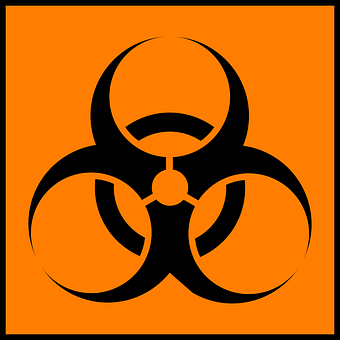DE FAAKTO INTELLIGENCE RESEARCH OBSERVATORY
OUTBREAK INTELLIGENCE
SITUATION-EBOLA DRC CONGO
BACKGROUND AND ANALYSIS
The Ebola Virus Disease (EVD) in DRC Congo has been ongoing for 7 months now and efforts to contain the deadly virus are in setback mode due to several challenges
- The security situation is impacting the response
- Populations are wary of outside help after years of rebel attacks (AP)
- There is a lack of trust in authorities in Congo because of insecurity and conflict (AP)
- It is challenging to control this type of outbreak without community involvement in rapid detection (WHO)
- 80 percent of Ebola cases are untraceable-officials cannot accurately track the spread of the virus (Doctors Without Borders)
- Infection rates continue to be a problem
- 68 healthcare workers have been infected to date-indicating poor infection control practices
- Noscomial (Hospital Acquired) infections are upward trending due to poor practices and infection control
- Medical activities have been suspended by Medecins Sans Frontières after 2 facillities were burned down and 1 nurse killed
Community Trust Issues That Need to be Overcome for a Better Response Include,
- 30 attacks and incidents against the Ebola response in the past month alone
- Lack of trust-patients not seeking help- 40% of deaths outside medical centers
- Surveillance not effective- 35% of new cases are not linked to existing cases
- Security services-deployment is confused and hurting efforts- their role has never been to enforce sanitary measures
- Burial practices are poorly understood and offensive to relatives & community-Bodies wrapped in plastic and sprayed with chlorine, buried without ceremony, possessions burned
Failure to overcome grassroots problems surrounding, security, trust, burial practices, surveillance, detection, and infection control will continue to disrupt the arrest of Ebola in DRC Congo.
Ebola Statistics
- During the reporting period of 07 March 2019-World Health Organization
- 227 suspected Ebola Virus Disease cases under investigation
- 907 Ebola Virus Disease cases
- 841 confirmed cases
- 66 probable cases
- 569 deaths (overall case fatality ratio: 63%)
- 68 healthcare workers have been infected to date
- 84,361 persons have been vaccinated with rVSV-ZEBOV vaccine, manufactured by the pharmaceutical group Merck
According to a Reuters report and Medecins Sans Frontières (Doctors Without Borders)
- The battle against Ebola in Democratic Republic of Congo is failing
- The outbreak – the second worst ever – is not being brought under control
- Ordinary people do not trust health workers and an overly militarized response is alienating patients and families
- Medecins Sans Frontières (Doctors Without Borders) suspended medical activities at the focal point of the epidemic after two of its facilities were torched by unidentified assailants
- The outbreak, which has killed 569 people, would not be beaten unless the community trusted the authorities and were treated humanely
- The existing atmosphere can only be described as toxic
- MSF was insisting on security before it returned to its damaged facilities
- Ebola responders were increasingly seen as the enemy, with more than 30 attacks and incidents against the Ebola response in the past month alone
- Forty percent of deaths were outside medical centers, meaning patients had not sought care, and 35 percent of new patients were not linked to existing cases, meaning the spread of the disease was not being tracked
- Dead bodies sprayed with chlorine and wrapped in plastic bags, buried without ceremony, then they see their possessions burned (WSAU & Reuters)
Congo’s Health Ministry says,
- There appeared to be confusion about the security forces’ role
- The police and the army are not involved in Ebola response activities and their role has never been to enforce sanitary measures
- It is unacceptable for health officials to be threatened and attacked, or for the threat of violence to stop families burying their loved ones in a dignified and safe manner
World Health Organization Risk Assessment
- National and regional risk levels remain very high, though global risk levels remain low
- There is a potential risk for transmission of EVD at the national and regional levels due to extensive travel between the affected areas, the rest of the country, and neighbouring countries for economic and personal reasons, as well as due to insecurity
De Faakto intelligence assessment on 12 October 2018, noted the security situation would directly impact the response of authorities and the procedures required to counter the Ebola Virus. Inadequate infection control continues to be a challenge. Key mitigation strategies include, improved security, surveillance, screening and infection control.
Without implementation of these strategies and quality assurance the risk of transmission to other immediate regions remains high.
About Ebola
- Ebola virus disease (EVD), formerly known as Ebola haemorrhagic fever, is a severe, often fatal illness in humans
- The virus is transmitted to people from wild animals and spreads in the human population through human-to-human transmission
- The average EVD case fatality rate is around 50%. Case fatality rates have varied from 25% to 90% in past outbreaks
- The first EVD outbreaks occurred in remote villages in Central Africa, near tropical rainforests. The 2014–2016 outbreak in West Africa involved major urban areas as well as rural ones
- Community engagement is key to successfully controlling outbreaks. Good outbreak control relies on applying a package of interventions, namely case management, infection prevention and control practices, surveillance and contact tracing, a good laboratory service, safe and dignified burials and social mobilisation
- Early supportive care with rehydration, symptomatic treatment improves survival. There is as yet no licensed treatment proven to neutralize the virus but a range of blood, immunological and drug therapies are under development (WHO)
WHO https://www.who.int/csr/don/7-march-2019-ebola-drc/en/
WSAU News VIA Reuters https://wsau.com/news/articles/2019/mar/07/battle-against-ebola-being-lost-amid-militaries-response-ms-says/
The Associated Press https://www.apnews.com/7c914ab1e8a44a3d93f8e9066b5863af






